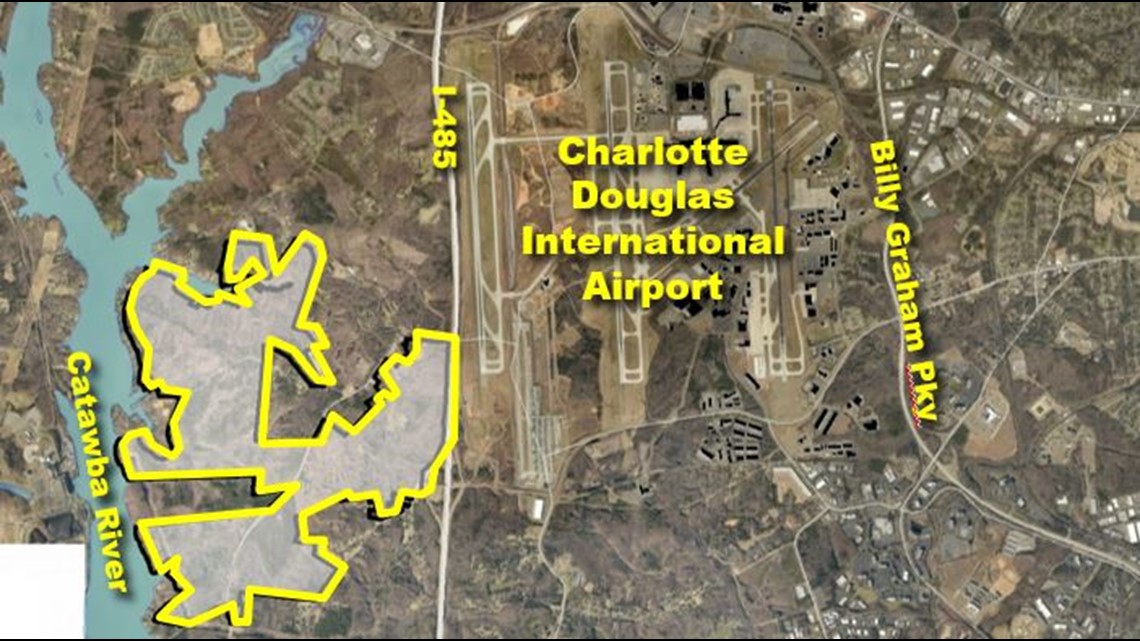The Charlotte City Council Zoning Committee is expected to rezone 185 acres as part of west Charlotte community.
CHARLOTTE, N.C. — The City of Charlotte Zoning commission is expected to discuss Monday the long-awaited river district being developed in west Charlotte.
The 1,400-acre master-planned community would sit on largely undeveloped land between Interstate 485 and the Catawba River not far from Charlotte Douglas International Airport. The location in Charlotte’s Dixie-Berryhill neighborhood is one of the largest areas of undeveloped land remaining in Mecklenburg County.
The community, first proposed in 2016, is expected to be a mix-used development featuring housing, shops, and other businesses, including hotels and medical offices.
One petition being reviewed Monday called for the rezoning of 184.9 acres to allow “up to 1,230,000 square feet of office and/or medical office uses, 340,000 square feet of community hospital uses, 104,200 square feet of commercial uses, hotel uses with up to 250 rooms, 275 multifamily dwelling units and/or senior multifamily dwelling units, and 50 single family attached dwelling units.”
The community, which is expected to rival developments like Ballantyne, is being built by in phases by multiple companies including Crescent Communities and Laurel Street. Construction of the entire community could take upwards of three decades to complete.
RELATED: Now is the time to speak up: Study seeks input on new bridge between Gaston and Mecklenburg
City of Charlotte Zoning Meeting on Monday will be held at the Government Center, 600 E. 4th Street, Charlotte, NC 28202 and will be open to the public. The meeting will begin at 4:00 p.m. with decision items, and public hearings will begin no earlier than 5:00 p.m. It will be available to view on the City’s GovChannel, Facebook, and YouTube pages.
AFFORDABLE HOUSING COVERAGE
WCNC Charlotte is part of seven major media companies and other local institutions producing I Can’t Afford to Live Here, a collaborative reporting project focused on solutions to the affordable housing crisis in Charlotte. It is a project of the Charlotte Journalism Collaborative,ken which is supported by the Local Media Project, an initiative launched by the Solutions Journalism Network with support from the Knight Foundation to strengthen and reinvigorate local media ecosystems. See all of our reporting at charlottejournalism.org.





